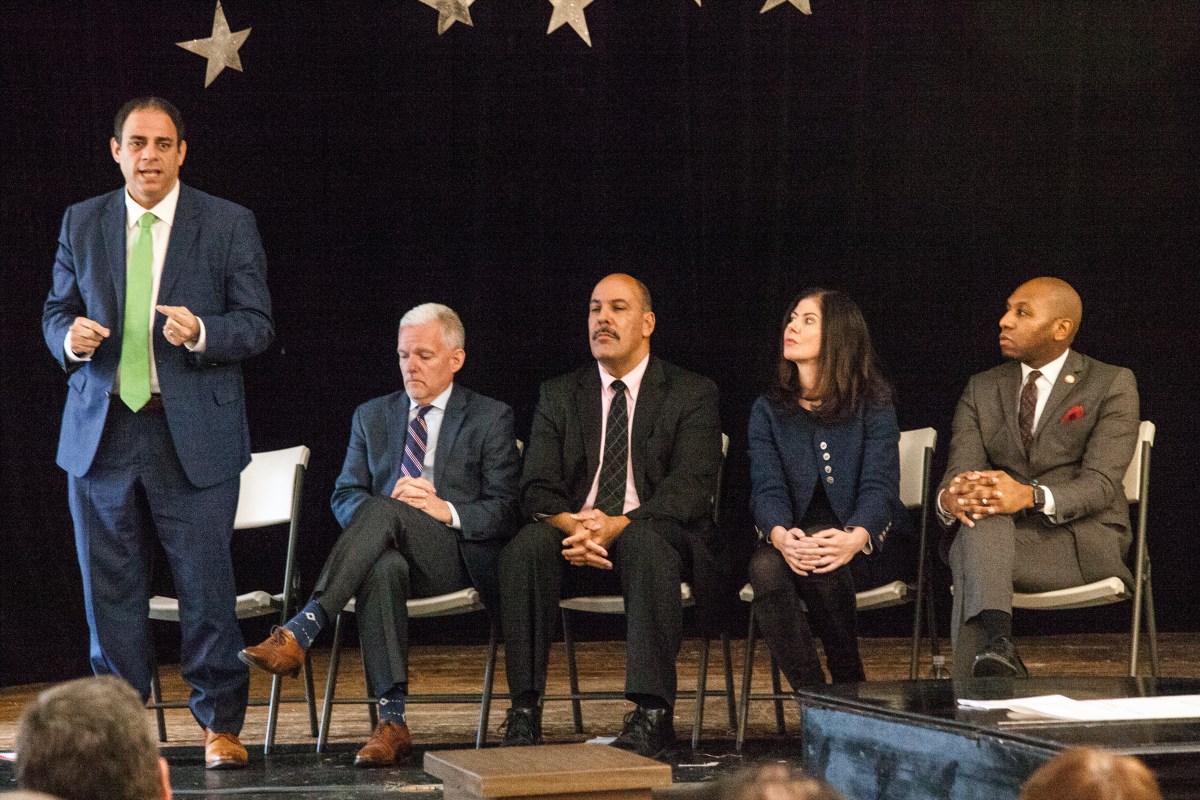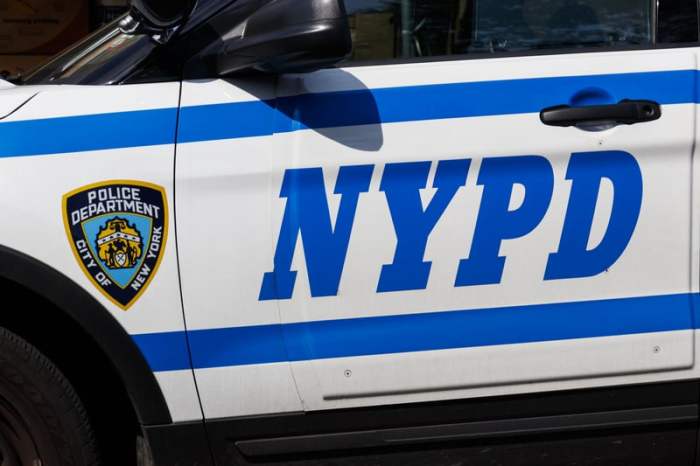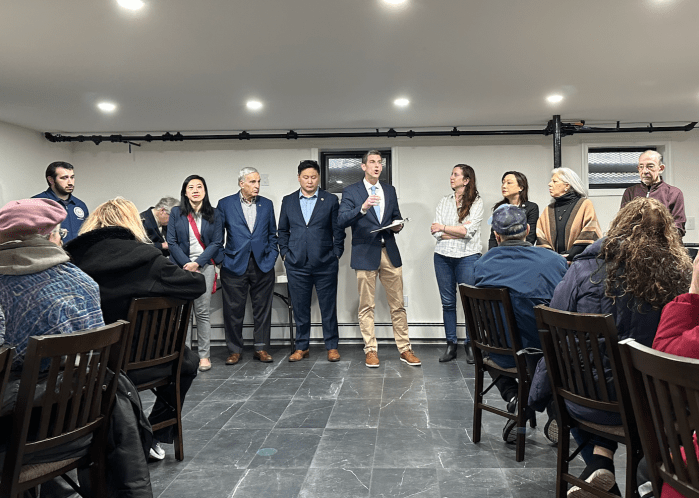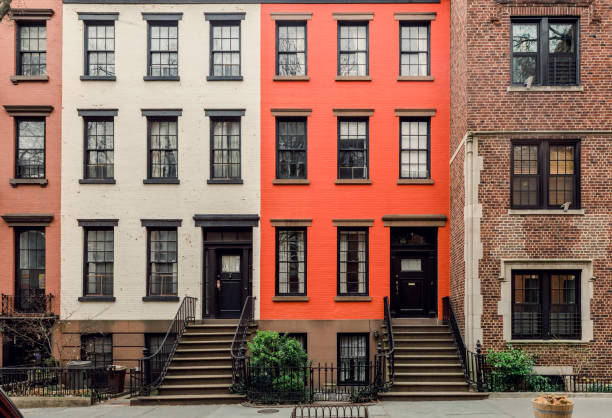One Queens Indivisible hosted the first Queens borough president forum of 2020 on Jan. 4 at Zion Episcopal Church in Douglaston. It was also the first forum since Councilman Donovan Richards nabbed the endorsement of the Queens County Democratic Party and Assemblywoman Alicia Hyndman dropped out.
The forum began with near conformity between the five on housing affordability, went on to cover transportation and community board diversity, and closed with a lightning round that ended up splitting the candidates on hot-button city issues that don’t necessarily fall under the purview of the office.
Asked about what how to make Queens affordable for working class residents, all candidates agreed that new residential development needs to include more affordable housing and higher levels of affordability.
“I won’t approve any ULURP application that does not have deep affordability and union work as part of that application,” said Councilman Costa Constantinides.
In her answer, former Councilwoman Elizabeth Crowley connected Queens’ housing crisis with a lack of transportation infrastructure. She pointed to the phenomenon of families doubling or tripling up in households because they cannot afford to have their own.
“Where are families doubling up the most? Along the 7 train. They are not close to opportunities and jobs,” she said, alluding to her plan to revive abandoned Long Island Rail Road’s Lower Montauk branch into a commuter line.
Throughout the forum, Richards distinguished his answers by expounding to his accomplishments as a Council member in great detail. On housing, he claimed that every project that has come to his Far Rockaway district after the devastation of Hurricane Sandy was 100 percent affordable.
Richards style of answer set a sharp contrast from that of Councilman Jimmy Van Bramer, who tended to use his answers to rail against various state and municipal systems from housing construction subsidies to the state control of the MTA.
“Most people who hear about a new de Blasio affordable housing plan have no faith and confidence that it will actually deliver affordable housing to those who most need it,” Van Bramer said.
On the other hand, Anthony Miranda, the National Latino Officers Association chairman, stood out as the only candidate on the stage without a tenure as a City Council member. He used this bit of personal history to profess his willingness to act as a counterbalance on Council members he sees as failing in their duties.
Asked about how to diversify community boards, Miranda said that he would be willing to push back against Council members who have not appointed new community board members to reflect the demographics of their council district. He also claimed that Queens members of the City Council have failed to create a unified vision of transportation in the borough.
At the tail end of the forum, the candidates answered a series of lightning round questions, which limited them to a “yes” or “no” answer. This style of question put some distance between the candidates’ answers.
The first of these asked whether they were in favor of getting rid of cash bail — a question that is sure to come up again after former Assistant District Attorney James Quinn entered the race with a platform that raises this as a central plank. All responded with “yes,” except for Crowley, who said that it depends.
When asked about abolishing the Specialized High School Admissions Test, more interesting differences arose. Van Bramer and Crowley said “no.” Miranda said “yes.” Richards said yes, “but with trepidation” and Costa, said no but “also with trepidation.”
On the decriminalization of sex work, all said “yes” except Crowley. And on legalizing e-bikes, all said “yes” except for Miranda who said “no,” and Crowley who tentatively said she’s “open.”

































